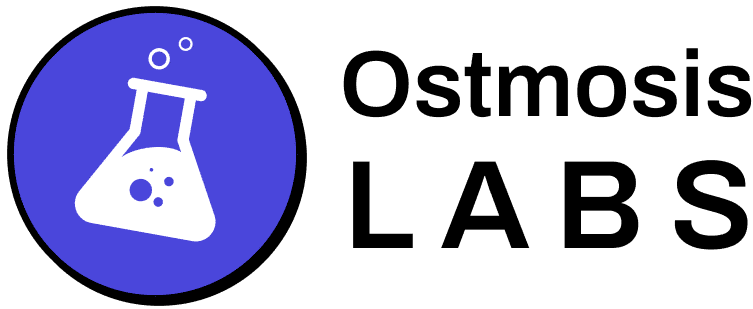Standing out in the digital marketplace is no small feat for a small business. With the right SEO tool, you can catapult your brand to the top of search engine results and ensure it’s seen. How to use SEO tools to grow your small business: In this comprehensive guide, learn how to demystify SEO tools from free tools like Google Search Console to robust platforms like SEMrush and Ahrefs. We help business owners harness the power of local SEO, keyword research, and competitor analysis and maximize online visibility.
Designed to keep marketing and optimization proficiently done in today’s digital space, our guide handpicks the best SEO tools, from free to paid, to help boost your ranking. Ready to take over your digital space? Let’s Jump right in.
Assess Your SEO Needs

Before going into the endless sea of SEO tools, assessing your small business’s unique needs can streamline your path to digital prominence. The first critical step is to identify weak areas in your strategy—keywords, content, on-page SEO, link building, or local SEO. Each aspect of search engine optimization demands a tailored tool for optimum performance.
- Keywords & Content: Are you reaching your target audience with the correct search terms and engaging content? Tools like Google Analytics and SEMrush offer powerful keyword research capabilities and insights into content performance.
- On-Page SEO: Assess the optimization of your website’s pages. Google Search Console and free SEO plugins for WordPress can help analyze and enhance on-page elements for better user experience and search engine friendliness.
- Link Building is the backbone of SEO. Strong backlinks from reputable sites boost your ranking and credibility. Ahrefs and other backlink analysis tools offer comprehensive insights into your link profile and growth opportunities.
- Local SEO: Local visibility is crucial for small businesses. Use local SEO tools within platforms like SEMrush or free versions of specialized software to increase your presence in local search results.
Matching the right tools to these specific needs doesn’t just amplify your online visibility; it ensures that every effort contributes directly to your overarching business objectives. Whether leveraging free SEO tools for foundational work or investing in paid tools for deeper analysis and automation, the best practice is to choose tools that align closely with your business’s weaknesses and strategic goals. Remember, digital marketing success stems from a well-tailored search engine optimization strategy.
Set A Budget

Investing in the proper SEO tools isn’t about splurging—it’s about intelligent budgeting for a vital aspect of your small business’s online growth. From free services to premium suites of SEO tools, the pricing spectrum caters to all levels of need and financial readiness.
- Free Tools: Jumpstart your SEO strategies without a financial commitment. Tools like Google Trends, Google Business Profile, and Google Keyword Planner offer invaluable insights into search queries and SEO performance. WordPress plugins like Yoast SEO and All-in-One SEO Tool are perfect for beginners who want to tackle on-page SEO issues.
- Free and Paid Tools: Many SEO tools provide a free version for newcomers, upgrading to paid options as they scale. Tools like SEMrush and Screaming Frog SEO Spider offer robust free services, proving themselves indispensable before you commit to their comprehensive SEO toolkit.
- Premium Tools: When SEO becomes central to your business strategy, powerful tools with advanced SEO features justify their cost. Ahrefs and Moz are examples of top SEO tools sought after by marketing agencies and SEO experts.
Small business owners must view these tools as an investment—a means to drive more traffic to your business, sharpen your local SEO strategy, and outperform competitors. A balanced SEO toolbox can include:
- Keyword Research Tools: Unveil what your audience is looking for and use this tool to guide your content strategy.
- Technical SEO & Content Analysis Tools: Tools like Screaming Frog SEO Spider and Google Search Console detect technical SEO problems and promote your business more effectively.
- Local SEO Tool: Promote your business locally with tools specifically designed for local SEO tactics.
Start with free and accessible tools, gauge their impact, and gradually allocate a budget for paid tools that offer a more targeted, advanced, or time-saving approach.
Choosing the best SEO tools means balancing your current SEO needs with your business’s vision for the future—ensuring they’re practical, scalable, and aligned with your budgeting realities.
Consider The Best SEO Tool Integration

Seamlessness in SEO means choosing tools that elevate your small business and fit like puzzle pieces with your existing digital ecosystem. Think integration, not isolation.
- CMS Synergy: The best SEO tool for your small business is one that integrates flawlessly with your content management system (CMS), like WordPress SEO plugins, streamlining your search engine optimization efforts.
- Data Unification: Connect tools like SEMrush or Ahrefs with Google Analytics for a centralized view of your website’s performance, from search volume to ranking improvements.
Why does this matter? Because when SEO tools for small businesses talk to each other—and to you—the following magic happens:
- Strategic Insight: Understand the full impact of your optimization efforts. A free SEO tool like Google Search Console, when paired with Google Analytics, unveils which search queries drive traffic and how users engage with your content.
- Workflow Efficiency: Save time with a local SEO toolkit consolidating keyword research, backlink analysis, and competitor analysis. Spend less time navigating and more time executing.
Here’s what smooth tool integration looks like:
- Content Marketing Empowerment: With a holistic SEO software solution, insights flow into strategy, refining your approach to content marketing and online visibility.
- Digital Marketing Alignment: Integrating free and paid tools, such as SEMrush or a free version of a backlink analysis tool, spans digital marketing efforts and offers comprehensive data to bolster your campaigns.
Tool integration isn’t a luxury—it’s a linchpin in small business SEO success. Don’t just choose a stand-alone SEO plugin; select a suite that amplifies your data analysis and enriches your search engine story.
Look For Comprehensive Features
When selecting the best SEO tool for your small business, ensuring it offers a complete suite of essential features is crucial. Here’s what to look for to empower your SEO strategies and promote your business effectively and thoroughly:
- Keyword Research and Analysis: Any powerful tool, like Google Keyword Planner or other top SEO tools, should provide comprehensive keyword research capabilities to drive traffic to your business.
- Competitor Analysis: Use tools to analyze competitors to better understand your market. This insight is invaluable for staying ahead in search queries.
- SEO Audit: Tools like Screaming Frog SEO Spider examine your site to detect common and technical SEO problems, providing a clear improvement roadmap.
- Backlink Analysis: Knowing who links to you and how is essential. Choose an SEO tool that helps by offering in-depth backlink analysis.
- Rank Tracking: Use reliable rank tracking to monitor your site’s performance across various search engines and adjust your SEO strategies accordingly.
- Content Optimization Suggestions: Tools should review your content and offer optimization tips, ensuring your posts meet SEO best practices.
- Reporting and Analytics: These are essential for reviewing progress and planning future moves. Ensure your chosen tools feature robust reporting that demystifies SEO performance.
In your quest for the perfect SEO toolkit, weigh options offering free and paid tools. Many SEO tools, like Yoast SEO for WordPress or the comprehensive all-in-one SEO tool suites, provide a variety of functionalities at different price points.
Small business owners can effectively manage their local SEO strategy and broader digital presence by choosing a tool with these comprehensive features, ensuring optimal online visibility and enhanced search engine ranking. Discover the best SEO tools that offer a complete package, making them a surefire asset to your marketing arsenal.
Usability And Support
Choosing the best SEO tool for your small business isn’t just about comprehensive features; it’s also about how easy the tool is to use and the level of support provided. Here’s why usability and support should be at the top of your checklist:
- User-Friendly Interfaces: Whether it’s keyword research, backlink analysis, or content marketing optimization, navigating through SEO tools for small businesses, like Google Search Console, SEMrush, or WordPress SEO plugins, should be straightforward. A clean, intuitive interface ensures your digital marketing efforts are efficient and effective.
- Customer Support and Resources: The best SEO tool for small businesses comes with hands-on customer support, in-depth tutorials, and valuable resources. A free SEO tool or paid tool, like Ahrefs or the accessible version of SEMrush, should help you master search engine optimization with access to a wealth of knowledge. This support is crucial for small business owners new to SEO, ensuring you’re never left in the dark when trying to boost your online visibility, understand search volume, or improve your search engine ranking.
When selecting SEO software or plugins, remember that ease of use and the availability of customer support can significantly impact your local SEO and optimization efforts. Tools like Google Analytics provide crucial insights, but their true value is unlocked with the right support network. They help business owners navigate the complexities of search results and effectively promote their businesses.
Check Reviews And Recommendations
Before settling on the best SEO tool for your small business, immerse yourself in the reviews and recommendations. This insight is invaluable, as experienced users and experts clearly understand the tools that enhance SEO performance. Here’s how to leverage this information:
- Online Reviews: Websites and forums are brimming with insights on every SEO tool imaginable, from free services like Google Keyword Planner to paid SEO software. Platforms like Google Business Profile and local SEO tools are scrutinized and celebrated for their features. Sift through them for common SEO issues and praise alike.
- Expert Opinions: Tap into the knowledge pool of SEO experts who’ve done the legwork and can identify the top SEO tools in the market. Expert analyses can cut through the marketing noise, whether your focus is on technical SEO, traffic growth, or content analysis.
- Personal Recommendations: Networks matter. Connect with other small business owners or marketing agencies and share SEO strategies. They might single out an all-in-one SEO tool like SEMrush or specialized ones such as Yoast SEO for WordPress and Screaming Frog SEO Spider for comprehensive SEO site audits.
Approaching your SEO toolkit with recommendations will save time and effort, ensuring you choose the best SEO tools to propel your business forward. Remember, a vast array of SEO tools are available, spanning free and paid options, simple to complex tools, and those perfect for DIY SEO to ones preferred by agencies. The goal? Find that one SEO tool that helps streamline your SEO needs and promotes your business effectively.
Top SEO Tools For Small Businesses
Navigating the SEO landscape can be complex, but the right tools streamline the process, helping you boost online visibility and rankings efficiently. Here’s a quick guide to some top SEO tools tailored for small business success:
- Google Analytics and Google Search Console: Essential and free tools that track your search results and website traffic, helping you understand customer behavior and optimize your digital marketing strategies.
- SEMrush or Ahrefs: These powerful tools excel in competitor and keyword research, giving insights into the search volume and potential areas for ranking improvement. Both offer comprehensive suites of SEO tools, including backlink analysis and content marketing suggestions.
- Moz Pro: Known for its detailed analytics and SEO optimization suggestions, it is invaluable for businesses aiming to improve their search engine rankings over time.
- Yoast SEO: A favorite SEO plugin for WordPress users, Yoast simplifies on-page SEO, including meta tags, XML sitemaps, and readability checks.
Choosing the best SEO tool involves aligning with your business goals and needs. Each tool offers unique benefits, from enhancing local SEO to mastering content marketing. Reflect on what fits your business model best to maximize search engine optimization outcomes. Your strategy should include a combination of free versions and paid tools, optimizing the investment in your SEO efforts.

